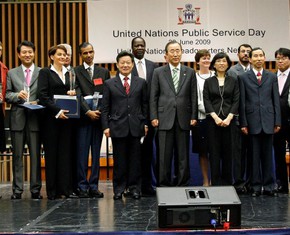The views expressed in our content reflect individual perspectives and do not represent the authoritative views of the Baha'i Faith.
The Baha’i teachings treat few subjects more emphatically and uncompromisingly than the spiritual requirement to abstain from fault-finding, backbiting, and gossip. In the Hidden Words, Baha’u’llah says:
O Son of Man! Breathe not the sins of others so long as thou art thyself a sinner. Shouldst thou transgress this command, accursed wouldst thou be, and to this I bear witness.
O Son of Being! Ascribe not to any soul that which thou wouldst not have ascribed to thee, and say not that which thou doest not. This is My command unto thee, do thou observe it.
In both modern and indigenous cultures, people gossip. We talk about the faults of others, often behind their backs. We freely criticize their actions, their choices and their characters, with little regard for how much that kind of activity hurts others.
RELATED: If You Can’t Say Something Nice…
Modern media has constructed an entire industry around gossip and fault-finding, especially where it concerns high-profile public figures like political leaders, entertainers and artists.
This constant and consistent societal drumbeat of backbiting and gossip, so heartless, corrosive and spiritually harmful, hurts both the recipient and the originator. The Baha’i teachings clearly advise us:
To be silent concerning the faults of others, to pray for them, through kindness, to correct their faults. To look always at the good and not at the bad. If a man has ten good qualities and one bad one, to look at the ten and forget the one; and if a man has ten bad qualities and one good one, to look at the one and forget the ten. Never to allow ourselves to speak one unkind word about another, even though that other be our enemy.
As in all religions, Baha’u’llah teaches his followers to forgive the sins of others. He says:
He should forgive the sinful, and never despise his low estate, for none knoweth what his own end shall be. How often hath a sinner attained, at the hour of death, to the essence of faith, and, quaffing the immortal draught, hath taken his flight unto the Concourse on high!
And Abdu’l-Baha explains:
Baha’u’llah has clearly said in His Tablets that if you have an enemy, consider him not as an enemy. Do not simply be long-suffering; nay, rather, love him. Your treatment of him should be that which is becoming to lovers. Do not even say that he is your enemy. Do not see any enemies. Though he be your murderer, see no enemy.
Look upon him with the eye of friendship. Be mindful that you do not consider him as an enemy and simply tolerate him, for that is but stratagem and hypocrisy. To consider a man your enemy and love him is hypocrisy. This is not becoming of any soul. You must behold him as a friend. You must treat him well. This is right.
RELATED: The Hypocrisy of Frenemies
So different from our current societal practices of shaming, separation and shunning, Abdu’l-Baha taught that no one should return hatred for hatred – that instead, we should endeavor, as spiritual beings, to return love for hatred:
. . . if someone oppresses, injures and wrongs another, and the wronged man retaliates, this is vengeance and is censurable. . . . No, rather he must return good for evil, and not only forgive, but also, if possible, be of service to his oppressor. This conduct is worthy of man: for what advantage does he gain by vengeance? The two actions are equivalent; if one action is reprehensible, both are reprehensible. The only difference is that one was committed first, the other later.
Adapted from One With All The Earth, © Kalimat Press 2003, All Rights Reserved.
You May Also Like
Comments



















‘Abdu’l-Bahá, ‘Abdu’l-Bahá in London, p. 125. This has been a commitment in my life for some time. Because of it I am seen as a trusted confidante to others. People recognize that NOTHING will pass my lips. It has not been difficult to share that, as a Bahai, I believe gossip and back biting ...in any context is first detrimental to my soul and second detrimental to someone being spoken of in their absence. It has generated many positive conversations.